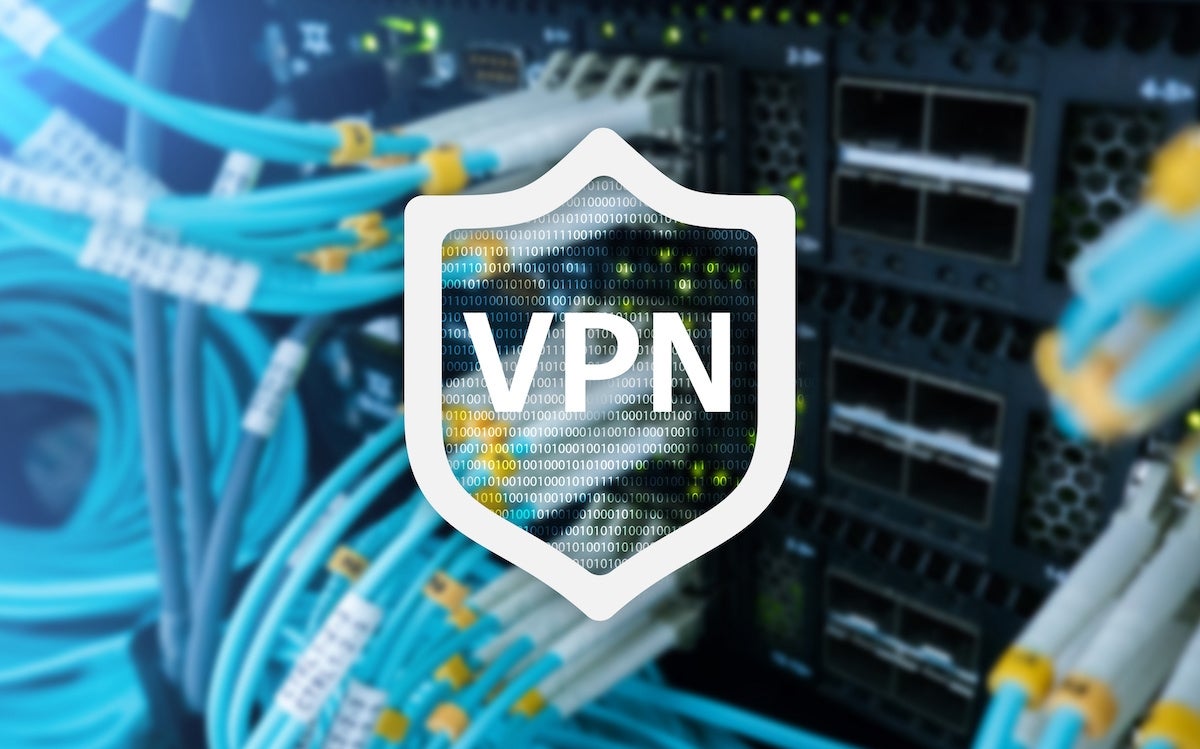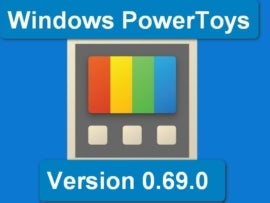-
NordVPN: Best overall
-
Surfshark: Best for multiple device users
-
ExpressVPN: Best for speed
-
CyberGhost: Best for easy setup
-
Private Internet Access: Best for technical users
Chrome is one of the most popular browsers, with an estimated 3.2 billion users worldwide. But for internet users, what makes Chrome a powerful browser is its expandable capabilities through a library of extensions. One of the most common extensions is the virtual private network extension. Using a VPN in Chrome helps users encrypt their data and ensure they keep their information and online activities private.
While there are a lot of VPNs available to Chrome users, not all of them can guarantee a secure and private online experience. To help you make the right choice, we present the best Chrome VPN software in 2023, highlighting their features, pricing, strengths and drawbacks.
Jump to:
- Best Chrome VPN software comparison table
- Best Chrome VPNs software
- NordVPN: Best overall
- Surfshark: Best for multiple device users
- ExpressVPN: Best for speed
- CyberGhost: Best for easy setup
- Private Internet Access: Best for technical users
- Key features of Chrome VPNs
- How do I choose the best VPN software for my Chrome?
- Methodology
Best Chrome VPNs software: Comparison table
The table below is a summary of the features commonly found in VPN software for Chrome.
| Product | Ad blocker | Split tunneling | Number of connections | Number of servers | Pricing |
|---|---|---|---|---|---|
| NordVPN | Yes | Yes | Six | 5,728 servers in 60 countries | Starts at $3.49/month |
| Surfshark | Yes | Yes | Unlimited | 3,200+ servers in over 100 countries | Starts at $2.39/month |
| ExpressVPN | Yes | Yes | Five | Multiple servers in 90 countries | Starts at $8.32/month |
| CyberGhost VPN | Yes | Yes | Seven | 9,000+ servers in 91 countries | Starts at $2.11/month |
| Private Internet Access | Yes | Yes | Unlimited | Not disclosed | Starts at $2.03/month |
Best Chrome VPN software
Here are our picks for the best VPN software for Chrome, with their pricing information, the positive takeaways and the drawbacks of using each.
NordVPN: Best overall
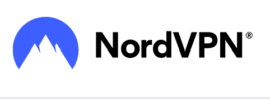
NordVPN is a popular VPN provider that offers a feature-rich Chrome extension. It boasts an extensive server network and provides advanced security features such as an ad blocker, split tunneling and a kill switch. It also has Threat Protection Lite, a feature that can automatically detect malicious websites and block IP addresses from communicating with them. NordVPN also makes it possible to block IP address leaks by disabling the WebRTC protocol. This protocol can reveal IP addresses and expose users to distributed denial-of-service attacks.
Pricing
NordVPN offers three pricing plans based on a monthly, one-year or two-year subscription model. There is also a 30-day money-back guarantee placed on each plan.
Pricing starts at $3.49 a month for the two-year plan. This plan comes with the essential features needed for the VPN to run on Chrome, such as an ad blocker, tracker blockers and malware protection against malicious sites. However, if you intend to use NordVPN software on Chrome as a full VPN service, you may wish to consider the Plus and Complete subscription options, which start at $4.49 and $5.49, respectively, for the two-year plan.
Features
- Blocks ads and unsafe links.
- Guards against IP address leaks.
- Split tunneling support.
- Offers a no-log policy.
- 5,728 ultra-fast servers in 60 countries.
Pros
- Unlimited bandwidth.
- Multitudes of servers.
- 30-day money-back guarantee.
- Easy to use on Chrome.
Cons
- One subscription only covers six devices.
- Users must pay to start the trial.
SEE: Surfshark vs NordVPN (2023): In-depth comparison
Surfshark: Best for multiple device users
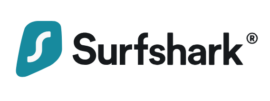
Surfshark works well on the Chrome browser without requiring a desktop client installation. The VPN offers many impressive features, including leak protection and unlimited device connections, which is great if you have multiple devices. It also has a no-logs policy, meaning it doesn’t store user activity data. Surfshark also includes a kill switch for added security and supports the secure OpenVPN protocol with AES-256-GCM encryption to safeguard user data. Additionally, Surfshark supports the WireGuard VPN protocol, which offers quality speed. Camouflage mode, similar to obfuscated servers, helps bypass VPN blocks and a CleanWeb feature that blocks intrusive ads, trackers and malicious domains.
Pricing
Like NordVPN, Surfshark offers a monthly, one-year and two-year pricing model. There is also a 30-day money-back guarantee on all three plans:
- Two-year plan: Starts at $2.39/month.
- Monthly plan: Starts at $12.95/month.
- Annual plan: Costs $3.99/month.
Features
- 3,200+ servers in over 100 countries.
- Ad and tracker blocker support.
- Ability to bypass internet restrictions.
- Supports a no-log data policy.
Pros
- Expansive servers in over 100 countries.
- Helps to bypass internet restrictions.
- Unlimited device connection with one subscription.
- It can be used on any device that supports Chrome.
- No need to install the desktop client for the app to run on Chrome.
Cons
- It can be sluggish during peak times.
- Users need to contact support to cancel subscriptions.
ExpressVPN: Best for speed

ExpressVPN for Chrome is known for being lightweight and providing a speedy and stable connection. The software offers an easy-to-use Chrome extension with many customization options. Once installed, users can decide whether to run the app with the default appearance or change to dark mode or a different color scheme.
Apart from being popular for speed with its proprietary VPN Lightway protocol, ExpressVPN for Chrome features multilingual language support, WebRTC blocking and location spoofing, and it uses the OpenVPN protocol to secure and transport data. For ease of use, ExpressVPN has a connect-on-browser-launch option. This way, users don’t need to reconnect the VPN on each Chrome launch.
Pricing
Subscription plans on ExpressVPN come on a monthly, six-month and 12-month basis. All plans come with a 30-day money-back guarantee:
- 12-month subscription: Starts at $8.32.
- 6-month subscription: Starts at $9.99.
- 1-month subscription: Starts at $12.95.
Features
- WebRTC blocking support.
- Available in 17 languages.
- Supports virtual server locations.
- No-log policy.
- Network Lock kill switch.
Pros
- Offers customization on appearance.
- Offers virtual servers, which help improve connection speed.
- Servers are available in over 90 countries.
- It’s available in multiple languages.
Cons
- Sometimes, you might need to disconnect and reconnect for it to work.
- One account can connect to only five devices at once.
- Pricing might be on the high side for some users.
CyberGhost: Best for easy setup
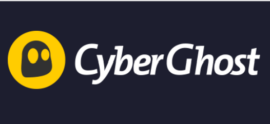
CyberGhost VPN for Chrome is popular for its free Chrome extension, which doesn’t require users to open a CyberGhost account. The free CyberGhost VPN for Chrome allows access to only eight servers in four countries. However, to get the best out of this VPN, users are better off going for the paid version, which is packed with features that support a secure and private browsing experience. Some of these features include no bandwidth limit, a no-logs policy, seven simultaneous connections to a single account, WebRTC leak protection and AES-256 encryption.
Pricing
Besides the free plan that is available for Chrome users, there are three CyberGhost paid subscription options:
- Monthly: Starts at $12.99 and has a 14-day money-back guarantee.
- Six months: Starts at $6.99 and comes with a 45-day money-back guarantee.
- Two years + three months: $2.11 a month with a 45-day money-back guarantee.
Features
- Automatic Kill switch.
- Access to over 9,000 servers in 91 countries.
- Supports up to seven devices simultaneously on a single account.
- Operates a no-log policy.
- Torrenting and gaming-optimized servers.
Pros
- Offers a free version.
- Easy to add to Chrome without going through the hassles of creating an account.
- 24/7 live chat support.
- Offers a 45-day money-back guarantee.
Cons
- The free version only has access to eight servers in four countries (U.S., Germany, Romania and Netherlands).
- The free version doesn’t have live chat support.
Private Internet Access: Best for technical users
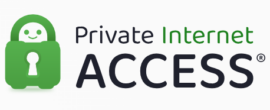
Private Internet Access (PIA) is another VPN option capable of offering browser protection for Chrome users. With impressive features that offer webcam and microphone protection, cut-off ads and trackers, force HTTPS encryption, WebRTC Protection and other security add-ons for grabs, PIA stands as a viable VPN software for Chrome.
Although PIA is open-source VPN software, it still requires a fee. The Chrome extension is compatible with only Chrome v48 or newer versions. With one subscription, users can connect PIA to unlimited devices, making it a top option for those wishing to surf the internet on multiple devices without paying more.
Pricing
PIA offers three pricing plans that come under monthly, one-year and three-year plans and a 30-day money-back guarantee:
- Monthly plan: Starts at $11.95 a month.
- One-year plan: Starts at $3.33 a month.
- Three-year plan: Starts at $2.03 a month, plus three months free.
Features
- It’s an open-source technology.
- Unlimited device connection.
- Webcam and microphone protection.
- Ad and malware blocking.
Pros
- Technical support is available 24/7.
- It’s open source, meaning that the codebase is open to better improvement.
- Includes antivirus software as an add-on.
- Users get an additional three months free on the three-year plan.
Cons
- Only compatible with Chrome v48 and newer versions.
- It has the lowest number of servers compared to its competitors above.
Key Features of VPNs for Chrome
The following features are common in every quality VPN software for Chrome.
1-click connection
VPN extensions for Chrome often have a user-friendly interface with a simple one-click connect/disconnect button. This simplifies the process of activating and deactivating the VPN. With a single click, you can quickly establish a secure connection to a VPN server, encrypt your internet traffic and protect your online activities. And when you’re done using the VPN, one click is all that’s required to disconnect Chrome from the VPN. This user-friendly feature makes VPN usage accessible to all Chrome users, regardless of their technical expertise.
Leak protection
VPNs for Chrome often offer leak protection, which helps ensure that IP addresses, domain name system queries, WebRTC information and other sensitive information aren’t exposed while browsing. This feature is essential for maintaining online privacy and preventing potential tracking or monitoring by third parties. VPN technologies do this by implementing measures that block any accidental exposure of personal information and online activities. This ensures that the user’s true identity and browsing history are protected while using the VPN.
Multi-device support
If you use Chrome as the main browser on all your devices, multi-device support allows you to run your VPN on your Chrome account across multiple devices, such as laptops, smartphones and tablets. This flexibility ensures that your Chrome browsers on these devices can also benefit from the added security and privacy the VPN provides. Depending on the VPN vendor, multidevice support typically supports simultaneous connections across five to seven devices. VPN providers like Surfshark and PIA support unlimited device support, which brings about flexibility in usage.
Ad and tracker blocking
Surfing the internet and having the feeling that you’re always being tracked by the websites you visit can generate anxiety. Another concern is the intrusive ads that jump on your screen from time to time. VPNs for Chrome include ad- and tracker-blocking features that block intrusive advertisements, trackers and malicious domains. Blocking enhances browsing speed, reduces distractions and improves the overall online security experience.
No-log policy
A strict no-log policy ensures that the VPN provider doesn’t collect or store logs of your online activities, including browsing history, connection timestamps, IP addresses and other identifiable information. With a no-log VPN, even if someone were to request or demand access to your online activities, there would be no data available for them to obtain. The no-log policy provides confidence that your internet activities aren’t being monitored, tracked and recorded by the VPN provider.
How do I choose the best VPN software for Chrome?
Choosing the best VPN for Chrome requires careful consideration of various factors. First, prioritize VPNs that offer robust leak protection to ensure your online activities and sensitive information remain private. If you’re interested in streaming geo-restricted content based on your location, look for VPNs with streaming support to access geo-restricted content effortlessly.
You should consider multidevice support if you want to secure your browsing experience on multiple devices simultaneously. Additionally, features like ad and tracker blocking can enhance browsing speed and security by blocking intrusive elements. You should choose a VPN with a strict no-log policy to guarantee that the VPN provider doesn’t collect or store your data.
Methodology
In reviewing the best VPNs for Chrome, we looked at essential features every VPN software in this category should have. We critically examined the security protocols employed by the VPN, their ability to support multiple devices and block intrusive ads and the overall browsing experience and user reviews on the Chrome extension review pages of each VPN. We also assessed the information provided by each vendor and compared such with reviews sourced from the Chrome VPN extension pages to ensure a balanced review.
Read next: The top 6 enterprise VPN solutions to use in 2023
